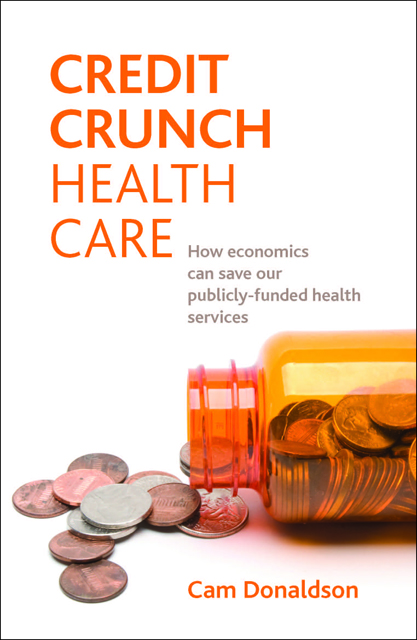Book contents
- Frontmatter
- Dedication
- Contents
- List of figures, tables and boxes
- About the author
- Acknowledgements
- Foreword
- one Introduction: the quid pro quo of health care
- two Market failure and health care
- three Charging the public: exception or anomaly?
- four Reform, privatisation and those damn doctors
- five The fiscal future of health care: an economistâs rant
- six Economic evaluation
- seven Whatâs your health worth?
- eight Conclusion
- Appendix: 'What's your health worth?' A questionnaire
- Index
seven - Whatâs your health worth?
Published online by Cambridge University Press: 15 April 2023
- Frontmatter
- Dedication
- Contents
- List of figures, tables and boxes
- About the author
- Acknowledgements
- Foreword
- one Introduction: the quid pro quo of health care
- two Market failure and health care
- three Charging the public: exception or anomaly?
- four Reform, privatisation and those damn doctors
- five The fiscal future of health care: an economistâs rant
- six Economic evaluation
- seven Whatâs your health worth?
- eight Conclusion
- Appendix: 'What's your health worth?' A questionnaire
- Index
Summary
Introduction
How can life and health be valued in monetary terms? Abhorrent though this may seem, life and health are evaluated in this way every day when decisions are made about what resources to allocate to health services, and within these services, how much to allocate to different programmes of care, and, even at the level of patient care, when decisions are made about who to treat, who not to treat or who has to wait. Two areas within the public sector that have made significant progress in developing evaluation methods are health and safety, especially transport safety. Environmental economics is also at the forefront of the development and application of evaluation methods. However, the strong links between health and safety with respect to their impact on life-saving and quality-of-life improvements make them a useful focus for this chapter.
The aims of the chapter, therefore, are to reflect current state-of-the-art in estimating monetary values for health and safety, and to suggest important next steps for research in these fields and how you as a reader may want to participate. The focus will initially be on health, because it is in this area that much recent debate has occurred about the need for monetary evaluation. It would seem natural then to move on to safety, this being an environment in which monetary evaluation appears to be acceptable up to a point (albeit still controversial). Lessons learned from experiences in these fields lead us to a discussion of the extent to which methods and results in one area can be brought together with those from the other and, indeed, more broadly across the public sector, so setting a research agenda as to how this might be achieved. Your participation would involve answering some of the weird and wonderful questions economists ask of people when conducting surveys aimed at putting a value on life or health.
Quality adjusted life years and willingness to pay
The issue of evaluating health in monetary terms has recently come to the fore internationally as a result of the creation of health technology assessment (HTA) agencies in several countries. In offering guidance to the health care systems in which they reside about the uptake (or maintenance) of health interventions, such agencies weigh up the costs and benefits involved.
- Type
- Chapter
- Information
- Credit Crunch Health CareHow Economics Can Save Our Publicly Funded Health Services, pp. 101 - 116Publisher: Bristol University PressPrint publication year: 2011



